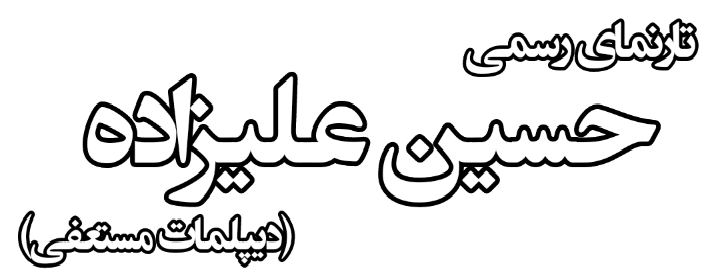English articlesصفحه نخست
Security, Intelligence Forces in Don Quixote’s Role
After the Supreme Leader ordered western-oriented subjects to be purged from the universities, it seems that the Islamic Republic began to launch new wave of clamping down on communication technology. Although it is not a new phenomenon in tyrannical governments to curb the freeflow of information, and the Islamic Republic has shown during last 33 years that it is firm on its stance against the free flow of information as it has banned numerous independent newspapers, sent jamming signals on Persian satellite channels, collected satellite dishes from rooftops and filtered websites, the regime is likely to define a new role for security and intelligences forces in their fight against the free flow of information which can be referred to as Don Quixote-like behavior of the regime against free flow of information.
After the Supreme Leader ordered western-oriented subjects to be purged from the universities, it seems that the Islamic Republic began to launch new wave of clamping down on communication technology.
Although it is not a new phenomenon in tyrannical governments to curb the freeflow of information, and the Islamic Republic has shown during last 33 years that it is firm on its stance against the free flow of information as it has banned numerous independent newspapers, sent jamming signals on Persian satellite channels, collected satellite dishes from rooftops and filtered websites, the regime is likely to define a new role for security and intelligences forces in their fight against the free flow of information which can be referred to as Don Quixote-like behavior of the regime against free flow of information.
The Supreme Council of Virtual Space, which was set up on March 7, 2012 by Ali Khamenei’s order in the presence of heads of judiciary, executive, legislative and other high ranking officials, is tasked with “maximum use of the opportunities in virtual space for country’s all-out progress.”
The presence of the Intelligence Minister, the Commander-in-Chief of the Revolutionary Guard and the Police Chief, the regime’s three main important security-military bodies, in the council reveals the regime’s security-military approach for limiting the free flow of information.
The initial idea for organizing cyber activities was raised in the National Conference on Cyber Defense which was aimed at outlining plans for confronting the so-called “cultural invasion” the Supreme Leader had earlier warned about. The intention was to deter the “cultural engineering” in the cyber space and to defuse “the threats imposed by the enemies of the Islamic Republic through modern communication technologies.”
The statement made by Brigadier General Hossein Hamedani, the commander of the Tehran-based division of the Revolutionary Guard, seems to be of utmost significance. Pointing to the creation of the Supreme Council of Virtual Space on March 17, 2012, he said “more than 1500 cyber commandos have been trained by the council. Contrary to previous years when there was a limitation on recruiting new members, this year the Tehran-based division of the Basij militia will recruit more than one million members.”
The council has three main important responsibilities all of which show the regime’s might to limit the country from having access to the World Wide Web (WWW).
The responsibilities of the council include establishing national email, establishing national search engines and expanding bandwidth, so that the regime is able to directly control flow of information from inside the country to the outside world.
Let us not forget that footage of the death of Neda Agha-Soltan and hundreds of similar footage, which, due to the absence of independent journalists, were captured by citizen journalists through their mobile phones and were broadcast worldwide through the internet, dealt a huge blow to the regime.
That is exactly the reason why the Intelligence Minister, the Commander-in-Chief of the Revolutionary Guard and Police Chief are members of the Supreme Council of Virtual Space. If the council’s duty is to control and to deter the so-called cultural invasion, as claimed by the Supreme Leader, what is the reason for the intelligence and security figures to be part of it?
Because of its inability to muzzle the flow of information about its horrendous crimes, the regime arrested the bloggers like Hossein Derakhshan, and, in a Don Quixote-like manner, arrested thousands of citizen journalists but to no avail.
To control the dissemination of news, the regime is trying to bring under its control the main passage of information flow, so that it can impose an intensive blackout on the flow of news.
The people’s refusal to take part in the state- engineered parliamentary election, held on March 2, 2012, was regarded a success for the oppositions and activists of the Green Movement who called for civil disobedience through the social networking sites and the internet. That is why the regime is desperately trying to disconnect Iran from the global virtual space. Let us not forget that the Intelligence Minister went to the point that he described search engines like Google as spying tools.
With the presence of the security and intelligence figures in the Supreme Council of Virtual Space, the regime is expected to launch new wave of massive repression against cyber activists so that it can erect a virtual iron curtain between Iran and outside world and control free flow of information.
As confessed by the commanders of the Revolutionary Guard, the so-called cyber commandos are trained to ruthlessly suppress the civilians, a kind of behavior which is a reminder of Don Quixote’s fight against windmills.


